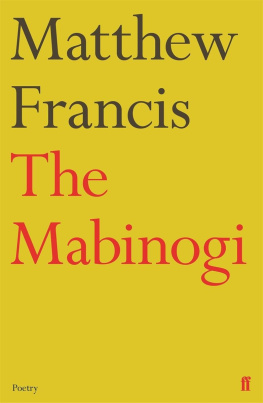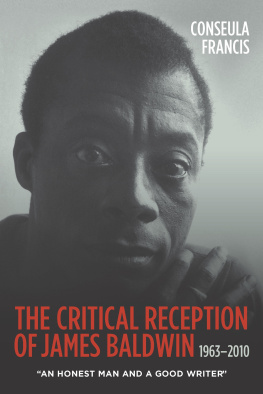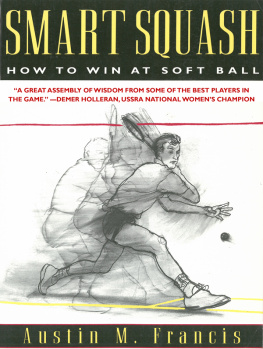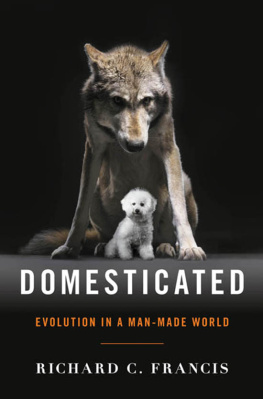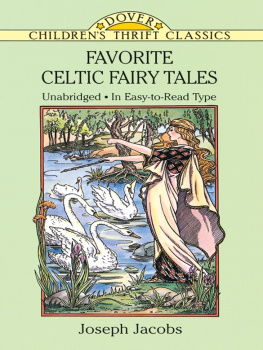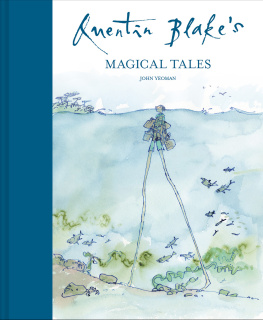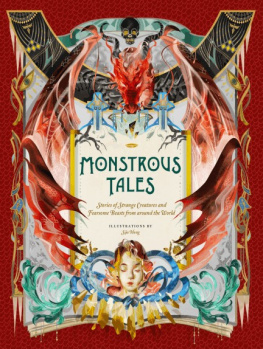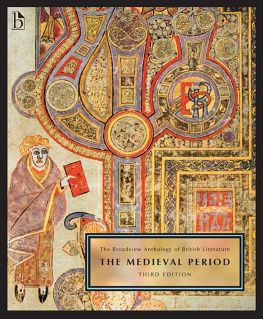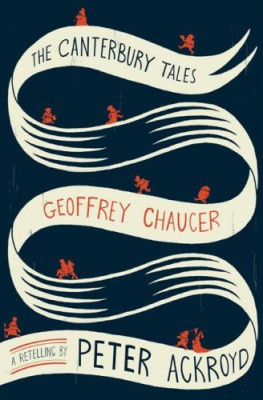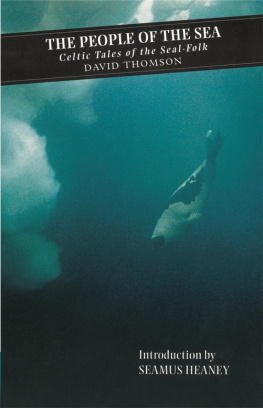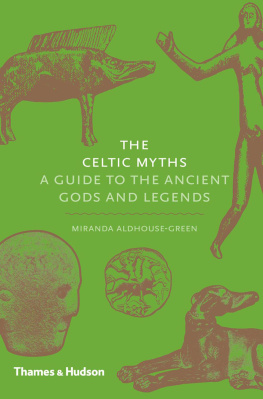A CKNOWLEDGEMENT is due to the following publications, in which parts of this book previously appeared:
Thanks to Matthew Hollis for suggesting this idea in the first place, and for all his support, and to Creina Francis and my friends at Aberystwyth University for feedback. I am grateful to the Department of English and Creative Writing at Aberystwyth University for a semester of research leave to enable me to work on the project, and to the director, administrator and trustees of the Hawthornden Foundation for a Hawthornden Fellowship, which allowed me to spend a month at Hawthornden Castle completing the Second Branch. My source for the text was the Oxford Worlds Classics edition of
, translated by Sioned Davies.
T HE book generally known (ever since Lady Charlotte Guests English translation of 18381845/9) as
The Mabinogion begins with the description of a horseman hunting in a forest. He is Pwyll, prince of Dyfed in southwest Wales, and he has an encounter there that is to change his life and set off a succession of extraordinary events. The stag he is chasing is brought down by a pack of hounds from another world, uncanny creatures with shining white fur and red ears.
Unaware that he is in the presence of the supernatural, Pwyll makes a terrible mistake, chasing them away and allowing his own dogs to feed on the carcass. Already in reading this passage we modern readers have to make a considerable imaginative leap. We may, for a start, have little sympathy with blood sports; but hunting was the normal pastime for men of Pwylls class and background at the time, the way they amused themselves when not indulging in their other favourite occupation of fighting, and there are to be many more hunting scenes in these tales. In our less chivalrous age, we are unlikely to realise at first the magnitude of the offence against good manners that Pwyll has committed in taking for himself and his dogs the quarry of another hunter, and particularly that of one who outranks him, for the wronged man, Arawn, is a king, not a prince. Another difficulty we encounter is in understanding that Pwyll has crossed a still more significant line: that which separates our world from Arawns kingdom of Annwfn, the Otherworld of Celtic myth. We are invited to suspend our disbelief in magic.
If we refuse, none of what follows will make sense to us, for the consequences of Pwylls transgression are entirely fantastical. They are also elaborate and far-reaching, extending in a dreamlike, elusive way over the complex plots of three more tales following this one, the group which describes itself, using the correct form of the Welsh word, as the four branches of the Mabinogi (the strictly inaccurate Mabinogion is now preferred for the whole group of eleven tales that share the same manuscript sources). This narrative logic, with its digressions and ellipses, is like nothing we are familiar with in modern fiction; it is the final obstacle we have to overcome if we are to take the stories to heart. When I first read the Mabinogi shortly after coming to live in Wales in 1999, I appreciated the dazzling inventiveness of the magic cauldron that simmers dead warriors to life, the tragedy of the queen isolated and humiliated in a foreign country, the macabre wit of the would-be farmer trying to hang a thieving mouse using a gallows improvised from two forks. But I couldnt quite come to grips with the narrative as a whole; it was too alien and labyrinthine. Like any good protagonist of a folk tale, I have learned better since.
These are tales that speak to us out of their own Otherworld, a world much older than the medieval manuscripts in which they were first written down, in Welsh, in the second half of the fourteenth century, the White Book of Rhydderch (c.1350) and the Red Book of Hergest (1382c.1410). We may not know the identity of their authors or the precise circumstances of their oral composition, but if we respect their otherness, we will find, paradoxically, that they have much to tell us about ourselves. Pwylls unlikely punishment is to exchange identities with Arawn. For a year, he is Arawn, riding a strange horse, feasting in a strange hall, enjoying the wealth and luxury of a kingdom far richer than his own, while the man he has offended takes over the lesser realm. Its the logical consequence of the crime he has committed: take what belongs to someone else and you are staking a claim to be that person. Very well, Arawn says, if you want what is mine, you can have it, even down to my face and body.
It sounds like a reward, not a punishment, and indeed Pwyll seems to have a good time during the year in which he assumes Arawns identity. But can you ever really enjoy yourself when you are no longer sure you have a self to enjoy? In failing to respect the rights of another person and the laws that govern our social interactions, Pwyll has condemned himself to an existence in a shadowy domain where nothing is real, least of all the person who experiences it. This is both punishment and test: to get his own life back, he has to prove that he understands how people should behave in society; to earn respect he has to show respect to others. The test has two parts. In the first, explicit part, he has to defeat Arawns enemy, Hafgan, a man who, like Pwyll himself, has violated Arawns rights, in this case by stealing his property and laying claim to the kingdom. Take over a mans identity and you also take over his problems and responsibilities and Pwyll shows himself equal to this.
The second part is more subtle. Along with all the other benefits of being Arawn, Pwyll is given permission to have sex with his wife, who, of course, believes him to be her husband. But this he refuses to do. In the daytime they talk happily together, but as soon as they are in bed, he turns his back. Touchingly, we see how hurt she is by his behaviour; indeed, the tale gives us, in negative form, a glimpse of a medieval marriage in which intimate conversation, as well as sex, was an important element. When Arawn returns, she reproaches him for ignoring her in bed, where they have always talked.
In refusing the privilege that Arawn offers him, Pwyll shows that his understanding of human responsibilities goes deeper than verbal formulae, the letter of the law. He may have crossed one line, but he is determined not to cross any others. This story, which, for all its richness of detail and variety of incident, is compressed to a mere five pages of Sioned Daviess fine recent translation, is a good example of the psychological and moral acuteness of the text as a whole. But it is much more than a parable, and Pwylls experience is not only a punishment and a test, but an adventure, too. After all, crossing boundaries is something we can hardly avoid; living, as we do, surrounded by other people with their conflicting desires and demands, we are bound to stray into forbidden territory occasionally. And the protagonist who learns better has gained insights that would have been denied to someone who never went astray in the first place, as well as having had an exciting, if disorientating, time.
Pwylls encounter opens a breach into the Otherworld, and, from now on, nothing is ever going to be normal. He falls in love with, and marries, a woman who has a mysterious power over time, and a mysterious affinity with horses. Their son, Pryderi, is kidnapped in infancy by a supernatural entity of which we see only the claw. Once restored to the family, Pryderi is to inherit his fathers friendship with Arawn, receiving a gift of pigs from the kingdom of Annwfn which will eventually prove his undoing, as he is killed by their thief in a single combat at a forest ford that mirrors Pwylls victory over Hafgan all those stories ago. In between, there are other boundary crossings, enchantments, forests, hunting scenes, love affairs, a whole war between Britain and Ireland, and a succession of fair-haired baby boys born in bizarre circumstances and growing up to have special powers. No one is quite sure what

